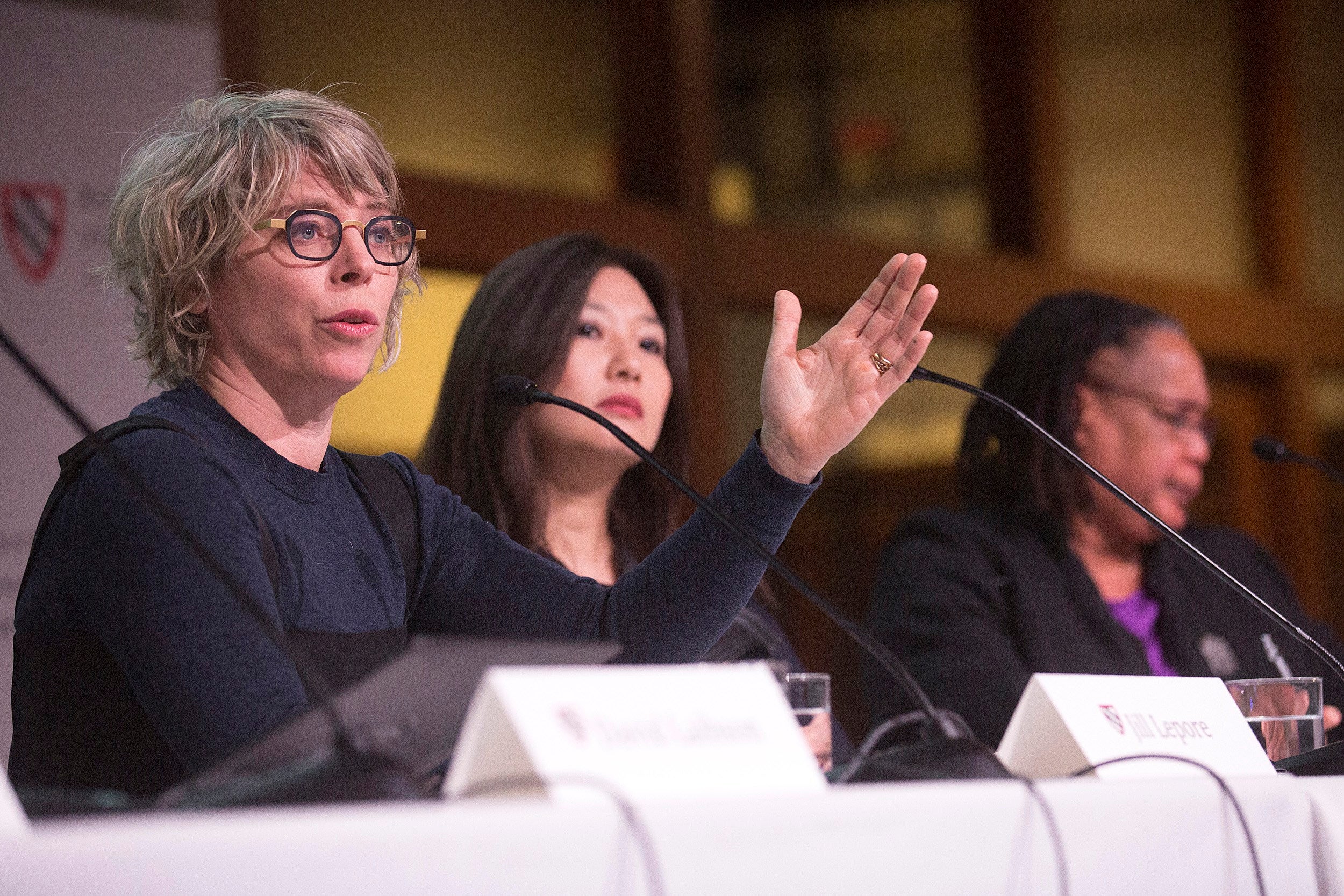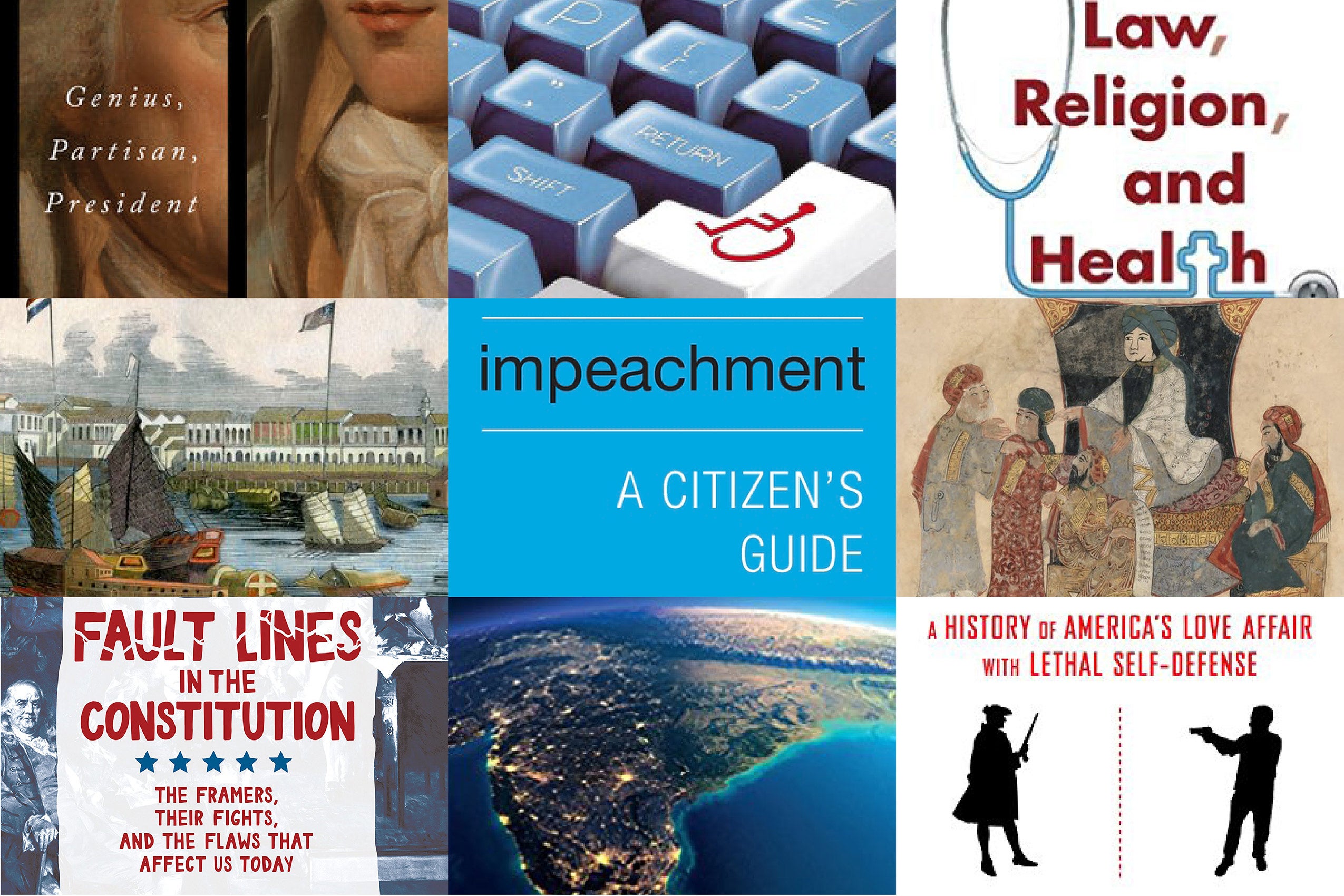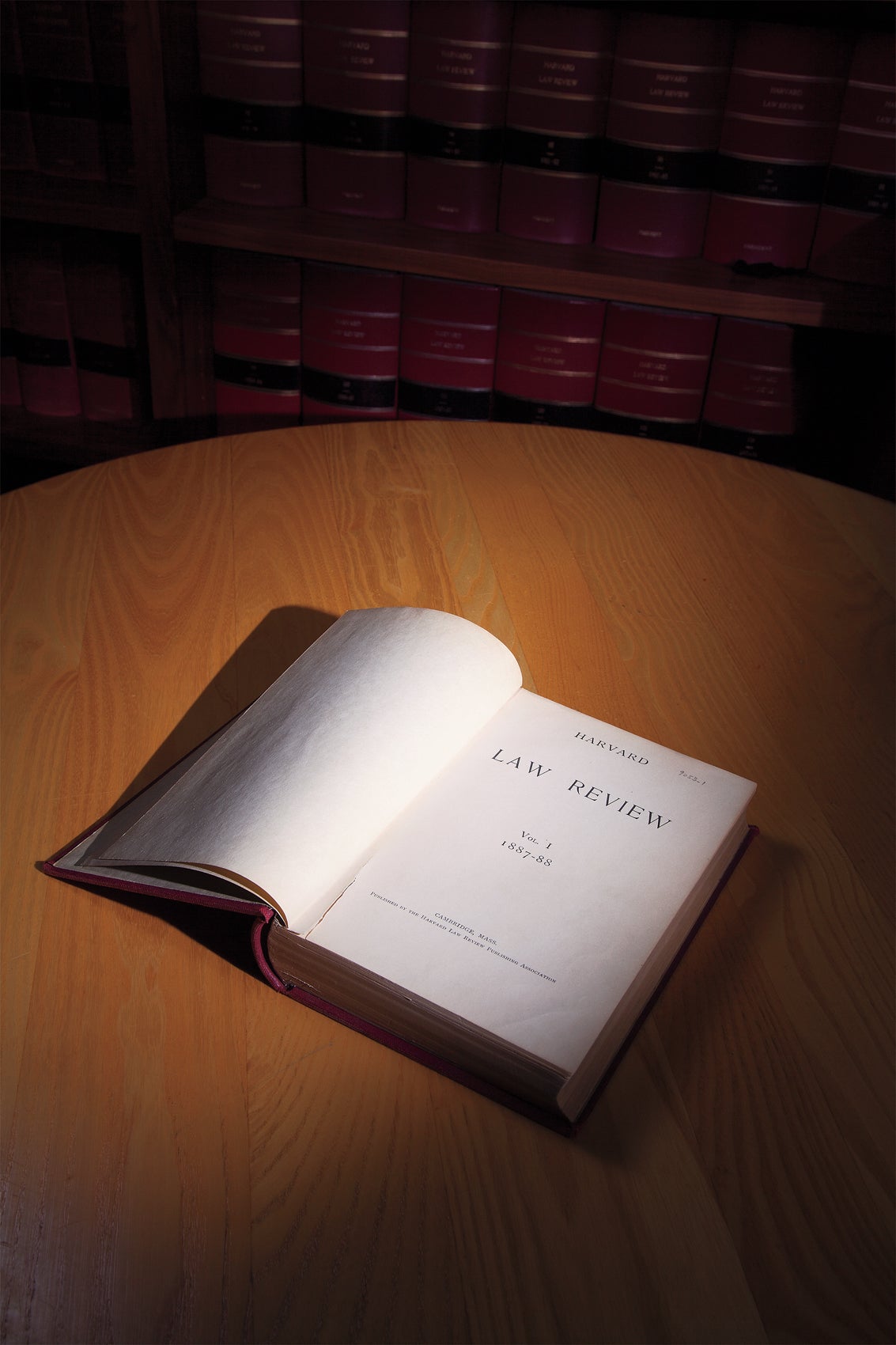People
Jeannie Suk Gersen
-
An essay by Jeannie Suk Gersen…In the coming months you’ll have to run the gantlet toward Senate confirmation. While Democrats will sound every alarm about your qualifications and temperament, which by all indications are excellent, we all know there’s little chance of your not being confirmed, given the composition of the Senate. Your nomination represents, for many, the fruition of a conservative dream to install a Justice who will overturn Roe v. Wade and wrest the Court back from where Justice Kennedy surprisingly enabled it to go. But you are a judge. You’ll tell the senators that you don’t have predetermined votes on the matters you may hear.
-
Harvard University is under fire for allegedly holding Asian applicants to higher standards than students of other races, according to a discrimination lawsuit filed by the Students for Fair Admissions...Harvard Law alumna and professor Jeannie Suk Gersen says it doesn’t have to be a question of either or. Gersen breaks down the case and explains why she hopes the lawsuit will begin a conversation about the consequences of affirmative action.
-
Harvard Is Wrong That Asians Have Terrible Personalities
June 26, 2018
There’s a moving passage contained in a deposition taken in the major class-action lawsuit accusing Harvard University of racial bias against Asian-Americans...As the Harvard law professor Jeannie Suk Gersen pointed out in The New Yorker, the tortuous and evasive quality of the discussion of the treatment of Asian-Americans in elite colleges stems from the way our legal doctrine on affirmative action has evolved. The Supreme Court ruled that it was legal to use race as a criterion in admissions in order to pursue the educational benefits of “diversity” in the landmark 1978 case Regents of the University of California v. Bakke, but it forbade the imposition of racial quotas and, by extension, the maintenance of a policy that consciously aims at “racial balancing.” This imposes a legal condition on Harvard. Rather than make the honest claim that it actively pursues racial balance and that there are good reasons to do so, the school must engage in a charade that nearly everyone working in the proximity of a highly competitive college knows to be false.
-
How Title IX became an ideological battering ram
May 29, 2018
Do we really need to litigate every school dress code in federal court? The ACLU and the National Women’s Law Center think so. They argue that rules against inappropriate attire perpetuate “gender stereotypes” in violation of Title IX, the federal law that prohibits sex discrimination in education. Since its passage in 1972, Title IX has unleashed a flood of opportunity for women and girls in the classroom and on the playing field...In short, Title IX has been an incredible success. Unfortunately, however, the law that was intended to break down barriers to opportunity is now being misused to change the way students and teachers think about gender generally...As such, Melnick joins a growing chorus of principled liberal voices, including feminist scholar Laura Kipnis, former federal judge Nancy Gertner, legal affairs reporter Stuart Taylor, and Harvard Law professor Jeannie Suk, who have opposed the use of Title IX to chill speech, deny due process, and prevent educators from resolving controversial issues without litigation.
-
Ashley Judd sued Harvey Weinstein on Monday, opening a new legal battlefront for the disgraced film producer by claiming that her career withered because he spread lies about her in Hollywood after she rejected his sexual requests. It is rare for people to recover damages for smear campaigns — for instance, quietly labeling actresses as “difficult” when they don’t acquiesce to powerful men — because of how complicated it can be to prove the action took place, let alone directly harmed someone’s career. But Ms. Judd has an A-list director on her side: Peter Jackson, who came forward in December to say that he removed her from a casting list “as a direct result” of what he now thought was “false information” provided by Mr. Weinstein...Jeannie Suk Gersen, a professor at Harvard Law School who specializes in gender and sexual harassment issues, said Ms. Judd’s complaint is notable because it “speaks to the fact that this is not just a sexual issue — that, beyond physical and emotional harm, it also involves economic harm.” She added, “If successful, the legal arguments that are being marshaled here are a big deal for lots of people, not just in show business but in all sorts of hiring contexts.”
-
An essay by Jeannie Suk Gersen....The Cosby case is, in the end, an emblem of #MeToo, not just because it ended in a guilty verdict but because of the exceptional if controversial evidentiary procedure that enabled a chorus of witnesses—witnesses who would generally be excluded—to back up the main complaining witness and could well have made the difference between a juror having a reasonable doubt and not having it. It remains to be seen how broadly the legal workarounds for uncharged prior misconduct will be construed by trial courts in future sexual-assault cases, ones in which defendants are not alleged to have such a distinctive signature in the commission of their crimes—or so many victims.
-
Trump’s Affairs and the Future of the Nondisclosure
April 2, 2018
An essay by Jeannie Suk Gersen. In recent weeks, the former Playboy model Karen McDougal and the adult-film actress and director Stephanie Clifford, also known as Stormy Daniels, have forged ahead unbound. Both women sold their silence concerning their sexual encounters with Donald Trump, and now both are asking a court to declare those contracts void. All the while, they’ve been giving extensive media interviews on matters ostensibly covered by the agreements—most notably Clifford, in a much-hyped “60 Minutes” interview. A legal arrangement in which someone is paid not to talk (in Clifford’s case), or in which one sells one’s story in order to quash it (in the case of McDougal), is not unusual.
-
Probing the past and future of #MeToo
March 2, 2018
...The movement’s roots and its present and future impact were the focus of a discussion with Harvard scholars on Monday night at the Radcliffe Institute for Advanced Study, organized by the Schlesinger Library on the History of Women in America and moderated by Ann Marie Lipinski, curator of Harvard’s Nieman Foundation for Journalism...For Harvard Law School’s Jeannie Suk Gersen, recent statements from U.S. Supreme Court Associate Justice Ruth Bader Ginsburg point to another divisive debate. Asked about the #MeToo movement in a recent interview, Ginsburg said due process must not be ignored. Gersen, the John H. Watson Jr. Professor of Law, agreed. “One of the salient, and in my mind, very unfortunate aspects of the current moment is how a commitment to due process or fairness has become associated with one side, with men’s rights, with Betsy DeVos and her decision to rescind the Obama administration’s policies on Title IX,” which protects people from sex discrimination in education or other programs receiving federal aid, said Gersen.
-
Probing the past and future of #MeToo
March 2, 2018
The #MeToo movement’s roots and its present and future impact were the focus of a discussion with Harvard scholars on Feb. 26 at the Radcliffe Institute for Advanced Study, featuring HLS Prof. Jeannie Suk Gersen, Harvard Profs. Jill Lepore and Evelynn Hammonds, and Ann Marie Lipinski, curator of Harvard’s Nieman Foundation for Journalism, as moderator.
-
Schlesinger Hosts Panel about #MeToo Movement
February 27, 2018
A group of Harvard professors from across disciplines discussed the challenges, impacts, and implications of the #MeToo movement at a panel Monday at the Radcliffe Institute for Advanced Study’s Schlesinger Library...[Jeannie Suk] Gersen, a law professor, spoke about the role of due process in adjudicating sexual assault cases, pointing to the need for clarity in definition and accountability for sexual assault charges. “Due process is for innocent and guilty alike,” she said. “I am so heartened that the conversation has included actual real discussion about what we mean when we say sexual harassment, and what that behavior entails.”
-
A bit of advice for Harvard’s new president
February 20, 2018
What happens when you become president of the world’s most prestigious university? Suddenly everyone has advice for you. Lawrence S. Bacow, the former president of Tufts University, was named Harvard University’s next leader last week, and already the lobbying has begun. Here’s a taste of what students, alumni, professors, and others say they want him to focus on, when he takes over from president Drew Faust after her retirement in June...Jeannie Suk Gersen: “I hope President Bacow will focus on strengthening traditions of free speech, academic freedom, and respect for intellectual diversity that make possible the uncomfortable exploration of ideas that push us to discovery.”
-
‘Swimming with Sharks’
February 5, 2018
...The #MeToo movement fits naturally into the narrative we’ve constructed about the dramatic lives of our favorite stars. We are captivated by these women: their monochromatic dresses, majestic pins, sad eyes; their sober interviews and rousing speeches. It is a movement that feels cinematic in the scope of the depravity it unearths and the progress it promises. It is grittily dynamic, vehemently forward-moving. But Harvard is not Hollywood. Proclaiming “Me, too” means something different on a campus than it does on a screen...Sejal Singh [`20], a Harvard Law student and Policy Coordinator at Know Your IX, a national campaign against sexual harassment and violence in schools, says she thinks “we have yet to even scratch the surface” on the problem of sexual misconduct in academia. “It’s sort of odd to me that we were supposedly having this national moment where we start to reckon with not just these individual harassers, but I think much more importantly, the way that these intuitions have enabled them,” Singh says...Jeannie Suk Gersen, a professor at the Law School who has campaigned against Obama-era Title IX changes, says she thinks this protracted focus on the issue means that higher education is in a position to “appreciate the complexity of the problem.” “All of those issues that we dealt with and are continuing to deal with on campuses are now on a broader scale at workplaces and other kinds of institutions,” Suk Gersen says...But others worry that academia’s focus on Title IX shifts the focus to semantics, stymying the potential for more nuanced discussions about broader cultures of harassment. “We’re still fighting about the legal definition,” says Paavani Garg [`18], a Harvard Law student and president of the Women’s Law Association. “We’ve been talking about Title IX for so long... It seems to be something that isn’t always the most effective way of dealing with victims of sexual assault and their needs.”
-
Donald Trump’s Brain is a Catch-22
January 26, 2018
An essay by Jeannie Suk Gersen. A performative contradiction is a statement whose effect goes against its intended meaning. A canonical example is Donald Trump’s January 6th tweet in which he insisted that he is a “very stable genius.” Speaking last week about the President’s first physical exam in office, Ronny L. Jackson, the White House physician, stated that he “found no reason whatsoever to think the President has any issues whatsoever with his thought processes.”
-
This Is How Mass Incarceration Happens
January 22, 2018
On Saturday, Democratic New York Sen. Kirsten Gillibrand provided a pertinent reminder that the road to mass incarceration is paved with good intentions. In a trio of tweets, Gillibrand, a likely contender in the 2020 presidential race, expressed her support for the campaign to recall Aaron Persky, the judge who sentenced Brock Turner to just six months in jail for violent sexual assault...“The current recall movement,” Harvard Law professor Jeannie Suk Gersen wrote in the New Yorker, “could have the effect of pressuring judges to play it safe by sentencing more harshly—and there is no reason to believe that will be true only in cases with white male rape defendants.”
-
How Colleges Foretold the #MeToo Movement
January 17, 2018
Since the fall, the staggering cascade of sexual-misconduct allegations waged against powerful men—from Hollywood moguls to prominent politicians—has mostly centered on the workplace. But as the nation fixated on the downfalls of Harvey Weinstein, John Conyers, and countless others, what has come to be known as the #MeToo movement has been reverberating on college campuses across the country, too...Support for the new guidelines “was a national moment of students rising up to say enough was enough, that we wouldn’t tolerate harassment and violence and institutional indifference anymore, and that we demanded safe and equitable campuses,” said Sejal Singh [`20], a Harvard Law student who works with the national advocacy group Know Your IX...The Harvard Law professor Jeannie Suk recently argued in The New Yorker how Title VII, the workplace anti-discrimination law, could carry similar implications. “We can learn a lot from the campus experience, but we’re probably going to see repetition of some of the same errors in addressing such a serious and complex set of problems,” Suk wrote in an email.
-
The Transformation of Sexual-Harassment Law will be Double-Faced
December 21, 2017
An essay by Jeannie Suk Gersen. Earlier this month, when a majority of Senate Democrats demanded Al Franken’s resignation after multiple allegations of unwanted kissing and groping, Bernie Sanders called for a “cultural revolution” to combat sexual harassment. The reckoning would affect “not only high-profile men,” Sanders said, but also harassers “in restaurants, in offices all over this country where you have bosses that are not famous.” Putting aside the unfortunate evocation of the Chinese Cultural Revolution, Sanders’s declaration posed a useful question: How will the current avalanche of sexual-harassment allegations toppling prominent men in media and government roll down to more mundane workplaces? As employers and employees across the country try to apply lessons from #MeToo into quotidian employment contexts, legal norms that govern workplace sexual harassment may also be poised to undergo epochal transformations.
-
On the Bookshelf: HLS Authors
December 14, 2017
This fall, the Harvard Law School Library hosted a series of book talks by HLS authors, with topics ranging from Justice and Leadership in Early Islamic Courts to a Citizen's Guide to Impeachment. As part of this ongoing series, faculty authors from various disciplines shared their research and discussed their recently published books.
-
A crisis of resilience at Australian universities
December 14, 2017
One in three students have thought about self-harm or suicide in the last 12 months while 70 per cent rate their mental health as “poor”, according to a study by Headspace... Harvard Law professor Jeanine Suk wrote in The New Yorker: “About a dozen new teachers of criminal law at multiple institutions have told me that they are not including rape law in their courses, arguing that it’s not worth the risk of complaints of discomfort by students.”
-
Mentors, Friends and Sometime Adversaries
November 29, 2017
Mentorships between Harvard Law School professors and the students who followed them into academia have taken many forms over the course of two centuries.
-
From Law’s Boundaries to the Law and Justice Gap
November 29, 2017
A sampling from the Harvard Law Review Bicentennial issue
-
An essay by Jeannie Suk Gersen...The removal of Trump using the Twenty-fifth Amendment is the aim of a newly launched social movement composed of mental-health professionals. The group, called Duty to Warn, claims that Donald Trump “suffers from an incurable malignant narcissism that makes him incapable of carrying out his presidential duties and poses a danger to the nation.” On Saturday, the organization held coördinated kickoff events in fourteen cities, where mental-health experts spoke out about Trump’s dangerousness and, in several, took to the streets in organized funereal marches, complete with drum corps.



